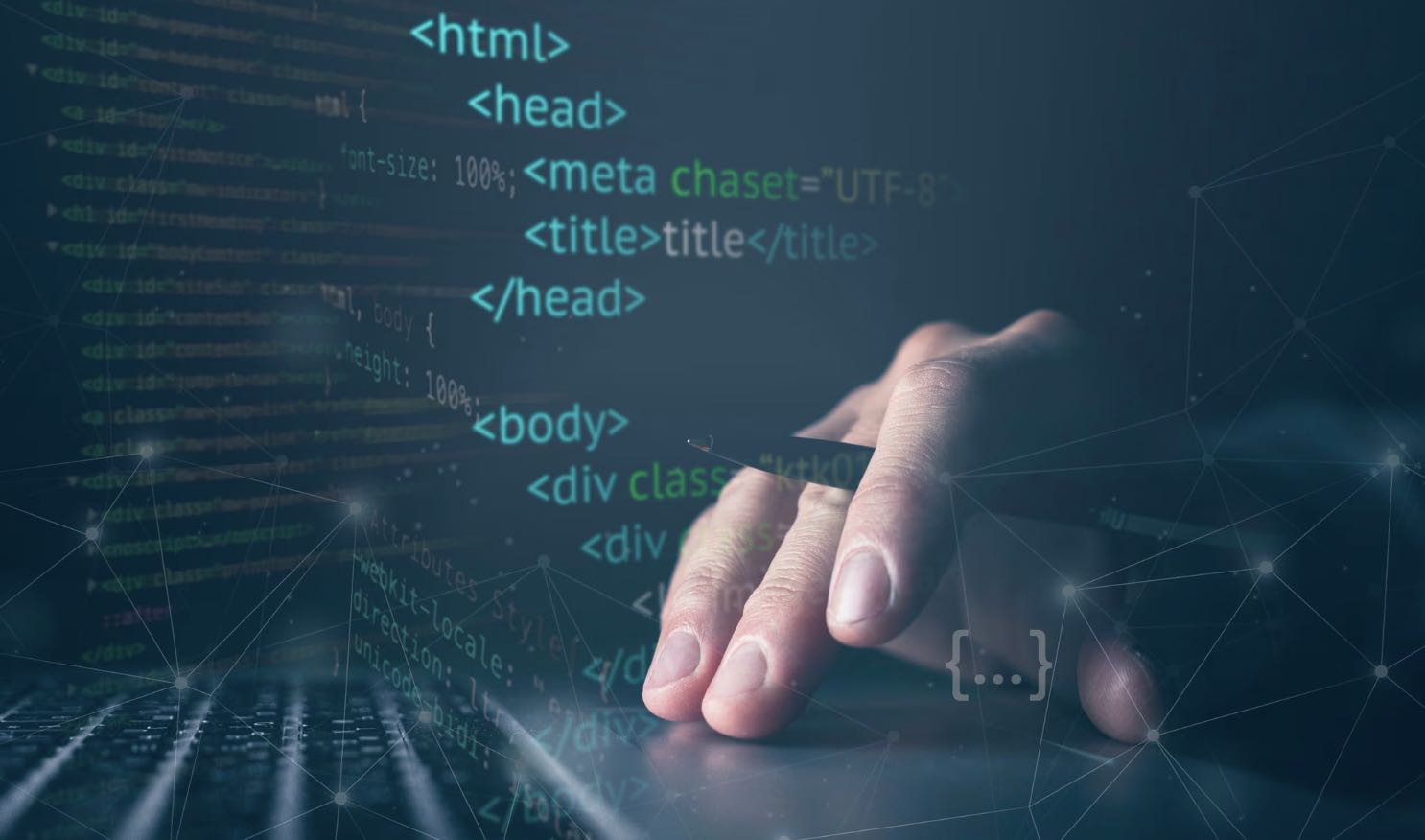
Table of Contents
- Why Is Coding So Important in Our Age?
- Where to Start Coding?
- 1. Determine Your Coding Purpose:
- 2. Focus on Core Programming Languages:
- 3. Use Reliable and Up-to-Date Resources:
- 4. Start with Small Projects:
- 5. Join Coding Communities:
- 6. Make the Learning Process Fun:
- Conclusion: Step into the World of Code!
Share
Coding is not only a skill that guides technology, but also a lifestyle that develops problem solving, creativity and analytical thinking. Today, many people who want to step into the world of software encounter similar questions in the first steps of this journey: “What is coding?”, “Which programming language should I learn?”, “How important can this skill be for me?” Although the answers to these questions vary from person to person, learning to code is not only a professional competence, but also a process that radically changes the way we understand and use technology.
We can think of coding as a door opening to a universe full of unlimited possibilities. Just as a painter can create countless works of art with his brush, a software developer can develop unique software products with his coding skills. Learning the basic rules in this process is one of the most important steps that paves the way for creativity. This world, which seems complicated at first, draws individuals in as they learn and makes a difference in many areas of life thanks to the opportunities it offers.
Why Is Coding So Important in Our Age?
Coding emerges as one of the most critical skills of the modern age. It is an indispensable tool not only for developing technology, but also for strengthening individuals' innovative thinking skills, finding solutions to social problems and building a more sustainable future. Let's examine it in detail to better understand the importance of coding:
-
Provides the Ability to Understand and Shape Technology:
Learning to code takes individuals out of being passive users of technology and turns them into active producers. Individuals who not only consume technology but also produce and shape it add value to society and the sector with these skills. For example, a software developer does not only use existing software; they can develop special software suitable for their own needs, optimize existing technologies and make them more efficient. -
Develops the Ability to Solve Complex Problems:
The coding process teaches you to divide large problems into small and manageable pieces. This skill is useful not only in the field of technology but also in daily life. In order to solve errors encountered while coding, it is necessary to think analytically, evaluate different perspectives and try the most effective solutions. For example, resolving a bug that occurs while developing an application continually improves problem-solving skills, and this competency can be adapted to other disciplines.

-
Reveals and Improves Creativity:
Coding allows individuals to push their imagination to the limit. An idea can be turned into reality with the right tools and techniques. For example, a software developer can develop a game, a mobile application or an automation system by simply writing code. This gives people the freedom to design and create their own projects. -
Opens the Door to Career Opportunities:
Today, many sectors need software and technology skills. Software knowledge in health, finance, education, entertainment and many other areas expands individuals' career paths. For example, a software developer can establish the digital infrastructure of a healthcare system, develop the security software of a bank or improve the user experience of an e-commerce platform. This skill makes individuals sought-after talents in many sectors. -
Facilitates Adaptation to the Digital World:
In today's world where digitalization is accelerating, it has become critical for individuals to understand and adapt to technology. Learning coding allows individuals to contribute to digital transformation and play an active role in this process. For example, designing a website, developing a bot for social media platforms, or writing software that analyzes data have become important parts of the digital world. -
Provides the Opportunity to Innovate in Different Fields:
Coding contributes not only to the technology sector, but also to different sectors such as education, agriculture, health, finance, and entertainment. For example, developing an automation system used in agriculture, creating an artificial intelligence-supported learning platform in education, or writing a diagnostic system used in the health field becomes possible with coding knowledge. -
Enables the Production of Sustainable Solutions:
Coding allows individuals to develop more sustainable and environmentally friendly projects. For example, developing energy-saving software, establishing a system that optimizes recycling processes, or designing a mobile application to reduce carbon footprint can be implemented with coding knowledge. -
Gives a New Perspective on Life:
Learning to code allows individuals to look at events from a different perspective. The analytical approach used to solve any problem helps individuals make more effective decisions not only in technological processes but also in many areas of life. For example, a software developer can use coding logic to solve the difficulties they encounter in their daily lives.
For these reasons, learning to code contributes to both the personal and professional development of individuals. In an age where technology is rapidly advancing, learning this skill has become not only a choice, but also a necessity. Coding is a key skill not only for today but also for the future. Now is the time to discover how you can start this journey and what steps you need to follow.
Where to Start Coding?
The first step for those who want to start coding is to make a proper plan and choose resources that will guide them in this process. Since coding is a broad field, it is critical to determine your goals and structure the learning process at the beginning. Here is a detailed guide to follow as you step into the coding journey:
1. Determine Your Coding Purpose:
To learn coding, you must first determine what you want to do.
- Web Development: If you want to create modern websites and applications, you can start with HTML, CSS, and JavaScript. These languages contain the cornerstones of visual design and user experience.
- Mobile Application Development: If you want to develop applications for Android or iOS, you can specialize in languages such as Java, Kotlin, or Swift.
- Game Development: If you are interested in the gaming industry, you can learn platforms such as Unity and explore C# or Unreal Engine and C++.
- Data Science and Artificial Intelligence: If you like working with data, languages like Python and R are powerful tools for data analysis and machine learning.
- Cyber Security: If you want to secure systems, you can learn Python for beginners and C for advanced learning about network security and encryption protocols.

2. Focus on Core Programming Languages:
When you’re getting started in the world of coding, it can be difficult to decide which language to learn. Here are a few recommended languages to start with:
- Python: It’s a great option for those just starting out with coding due to its simple syntax and wide range of use. It’s often used in data science, AI, and automation projects.
- JavaScript: It’s a critical language for both front-end and back-end development. It’s ideal for those looking to develop web applications.
- HTML and CSS: They’re the building blocks of building websites. No web developer can take the next step without learning these two languages.
- C and C++: It’s suitable for those looking to gain in-depth knowledge in areas like systems programming and game development.
- Ruby: It’s an easy-to-use language for beginners and is popular in web development.
3. Use Reliable and Up-to-Date Resources:
Accessing quality resources is important when learning coding. Educational platforms, books, and communities that offer up-to-date information can guide you.
- Online Education Platforms: Platforms such as Codecademy, Udemy, Coursera, and FreeCodeCamp offer basic and advanced training.
- Books and Guides: You can review comprehensive books written on software development to understand the logic of coding. For example, works such as Python Crash Course or Eloquent JavaScript are ideal for starting.
- YouTube Channels: Channels on YouTube that offer comprehensive lessons and projects will be useful for those who want to learn programming languages visually.
4. Start with Small Projects:
Practice is as important as theoretical knowledge when learning coding. By starting with simple projects, you can both apply what you have learned and gain confidence in yourself. Here are some examples of starter projects:
-
Build a Calculator: Create an app that takes user input and does basic math.
-
Design a Simple Website: Develop your design skills by building a personal website using HTML and CSS.
-
Note-Taking App: Develop a small piece of software that allows users to take and save notes.
5. Join Coding Communities:
When learning to code, it’s invaluable to tap into the power of communities. Join online forums, social media groups, and communities working on open source projects to both learn new things and network with other developers. For example:
- Stack Overflow: A popular platform where software developers ask and answer questions to each other (https://stackoverflow.com/questions).
- GitHub: Share your projects, is a place where you can review other people's codes and contribute to open source projects.
- LinkedIn Groups: You can strengthen your industry connections by joining LinkedIn groups focused on software development.
6. Make the Learning Process Fun:
Learning to code can be an intense process, but making it fun increases motivation. Apps and sites with gamification elements can help in this regard:
- Codewars: A platform full of challenges where you can improve your coding skills in a fun way.
- HackerRank: A platform focused on problem solvingm offers the opportunity to practice at different levels.
- LeetCode: Participating in coding competitions and is ideal for testing your algorithm knowledge.
7. Don't Be Afraid of Mistakes and Practice Constantly:
Making mistakes is inevitable in the coding learning process and is a natural part of learning. Every mistake is an opportunity to learn something new. Analyzing your mistakes and trying to understand the reason and solution will take your coding skills to the next level.
The coding learning journey is a long but satisfying process. Although it may seem difficult at first, every step taken on this path will bring you one step closer to your goals. Remember, coding is not just a skill, but also an art that changes your way of thinking. Now is the time to take the first step to realize your dream projects!

Conclusion: Step into the World of Code!
Coding may seem complicated and challenging at first, but with the right resources, planning, and constant practice, it is a skill that anyone can learn. Whether you want to advance your career or enter a completely new field, learning to code not only provides technical skills, but also improves your problem-solving and analytical thinking skills. By following this guide, you can make a strong start on your coding journey, moving step by step from small projects to big ideas.
Remember, every line of code brings you one step closer to building something new and turning your imagination into reality. Now, turn on your computer, select your resources, and take your first step into the world of code! Coding is the language of the future, and learning to speak it will open the door to countless opportunities.
Open a New Page in Your Career: Grow with Epigra!
A world awaits you at Epigra, where you can showcase your talents, take part in innovative projects, and make a difference in your career! Would you like to work with an expert team in an environment that is open to development and inspiring?
👉 To discover our career opportunities, don't forget to check out our job postings!
“Writing is seeing the future.” Paul Valéry


